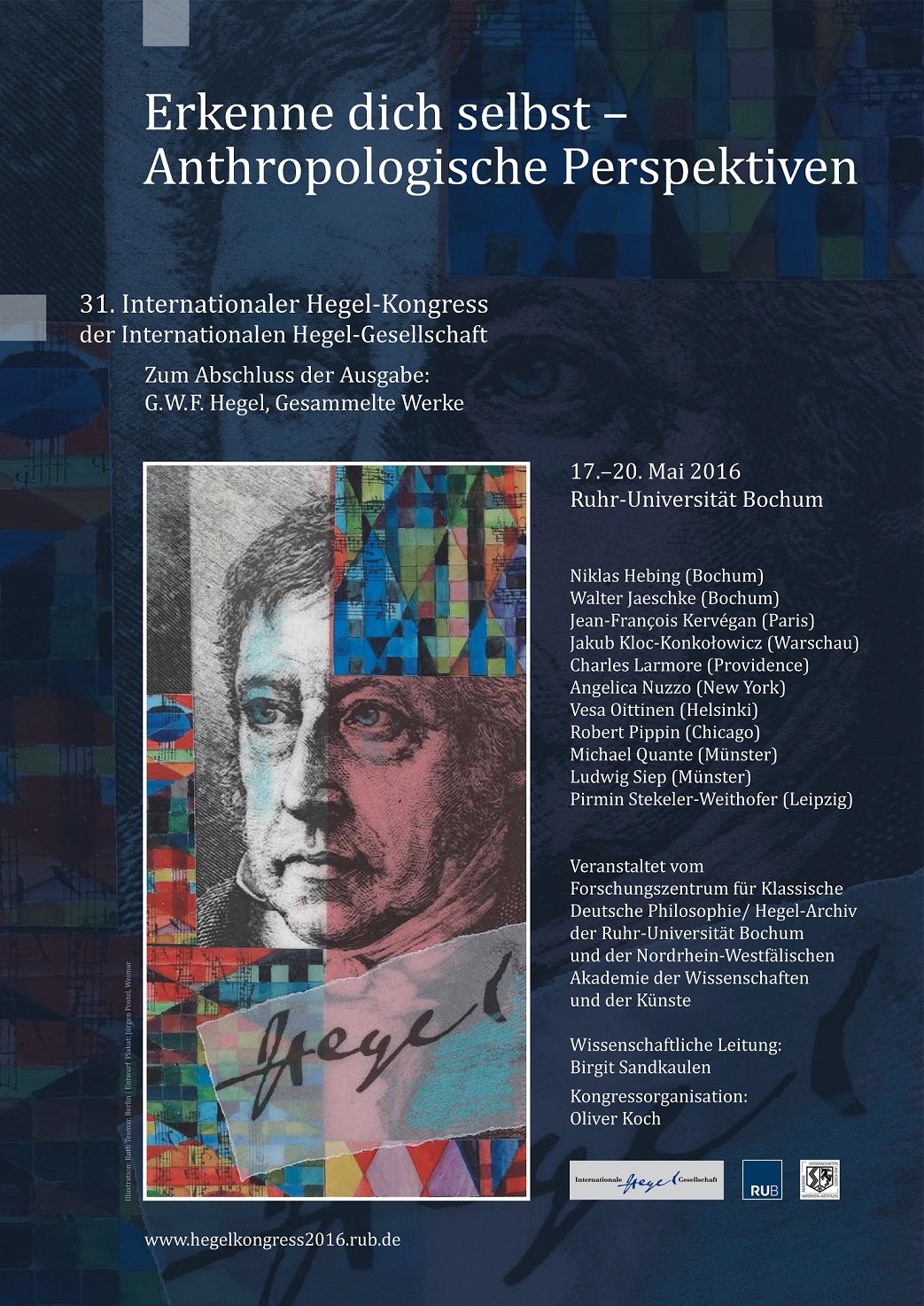Sponsored by the Center for the Study of Classical German Philosophy/ Hegel Archive (Ruhr University Bochum) in cooperation with the International Hegel Society and the North Rhine-Westphalian Academy of Sciences, Humanities and the Arts.
Program description
"Know thyself” – Hegel chose to begin his entire philosophy of mind with this “absolute commandment”. The self-knowledge in question differs explicitly from knowledge of particular capacities, propensities, and weaknesses in the individual self, and also from the ability to recognize such characteristics in others sometimes called “knowledge of men”. Important though such knowledge may otherwise be, Hegel regards it as philosophically trivial. When he prefaces his philosophy of mind with the absolute commandment “Know thyself”, he means “knowledge of the genuine reality of the human being, of what is essentially and ultimately true and real — of mind itself as the true and essential being”.
But what is “the genuine reality of the human being”? That is the perennial question of anthropology, as timely as it is ancient. In recent years anthropology has been at the forefront of interest to a degree unrivaled by other disciplines, in philosophy as well as in other areas of intellectual endeavor. As always, this heightened attention is a symptom of crisis. If we already knew for certain what form the answer should take, we would not have to ask the question, What is the human being?
Know thyself – Anthropological Perspectives”: The 31st International Conference of the International Hegel Society will be devoted to considering the perspectives on the “genuine reality of human being” opened by Hegel’s philosophy and to gauging both the extent to which they remain convincing and the respects in which they seem problematic or subject to renewal. At issue is the entirety of Hegel’s philosophy of mind and the resources it provides for philosophical anthropology. We welcome talks that focus on human beings, rather than merely on “the subject”. New approaches to anthropological aspects in Hegel’s logic and philosophy of nature are equally encouraged. Especially up for discussion, however, is the part of the Encyclopedia to which Hegel himself gave the title “Anthropology” and to which he devoted the recently edited lecture courses. In traversing this passageway between the philosophy of nature and the philosophy of mind, Hegel formulated insights into human life (including its pathologies) whose full significance we are still far from having exhausted.
Fittingly, given the conference’s thematic emphasis, the current edition of Hegel’s lectures in the historical-critical edition G.W.F. Hegel, Gesammelte Werke, makes available new material spanning logic, the philosophy of nature, subjective spirit, right and world history, and the philosophies of art and religion. The 31st Meeting of the International Hegel Society in Bochum in 2016 will mark the completion of the comprehensive edition produced under the aegis of the North Rhine-Westphalian Academy of Sciences, Humanities and the Arts – a welcome occasion to put those red volumes not on the shelves, but at the center of a productive debate on Hegel’s contribution to a philosophical anthropology.
Contributions are welcome in German, English, and French.



